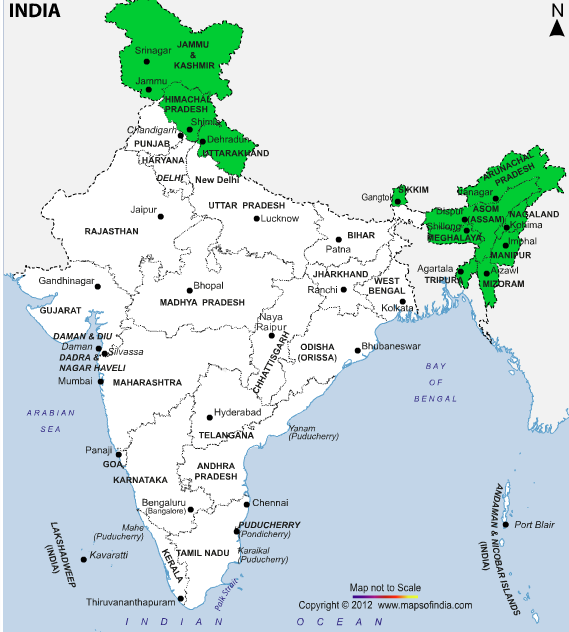News: Assembly session: Centre should not have ‘absolute numbers’ if A.P. is to secure Special Category Status, says Chief Minister Jagan Mohan Reddy
Q1. Examine the significance and concerns of granting Special Category Status to the states.
What is Special Category Status (SCS)?
- SCS is a classification given by the Centre to assist development of states that face geographical and socio-economic disadvantages.
- The Constitution does not make a provision for SCS and this classification was later done on the recommendations of the Fifth Finance Commission in 1969.
- Status was first accorded to Jammu and Kashmir, Assam and Nagaland in 1969.
- The erstwhile Planning Commission allocates funds to states through central assistance for state plans. Central assistance can be broadly split into three components: Normal Central Assistance (NCA), Additional Central Assistance (ACA) and Special Central Assistance.
- Currently, 11 States including Assam, Nagaland, Himachal Pradesh, Manipur, Meghalaya, Sikkim, Tripura, Arunachal Pradesh, Mizoram, Uttarakhand and Telangana have been accorded the special category state status.
Recommendations of 14th Finance Commission:
- The 14th Finance Commission has done away with the ‘Special Category Status’ for states, except for the North-eastern and three hill states.
- It suggested filling the resource gap of such states through tax devolution by increasing it to 42% from 32%.
- The interstate inequalities to be addressed through adequate tax devolutions and grants.
- Under the Finance Commission, some states receive revenue deficit grants.
Note: Special Category Status (SCS) is different from Special status which imparts enhanced legislative and political rights, while SCS deals with only economic and financial aspects.
Criteria to fulfil for SCS:
There are some criteria based on Gadgil-Mukerjee Formula as follows:
- Hilly Terrain
- Low Population Density and/or Sizeable Share of Tribal Population
- Strategic Location along Borders with Neighbouring Countries
- Economic and Infrastructure Backwardness and
- Nonviable Nature of State finances.
Significance of SCS:
- The Centre pays 90% of the funds required in a centrally-sponsored scheme to special category status states as against 60% or 75% in case of other states.
- The unspent money in a financial year does not lapse and could be carried forward.
- 30% of the Centre’s Gross Budget goes to Special Category states.
- Some significant concessions are provided to these states in excise and customs duties, income tax and corporate tax.
Concerns over SCS:
- It impacts over burden on Central Finances.
- Benefits flow regularly without any accountability or performance monitoring of the states.
- Lack of constitutional or legal status.
- It leads to a Spill-over Effect like giving special status to a state leads to demands from other states too. For instance, demands from Andhra Pradesh, Odisha and Bihar.
Way forward:
- Monitoring and accountability and granting of the SCS to a state should be through performance expectation.
- Adopting a target-based, time-bound arrangement that is focused on accountability, performance, and monitoring of achievements, with specific performance goals to be achieved by the beneficiary states for the benefits to continue.

